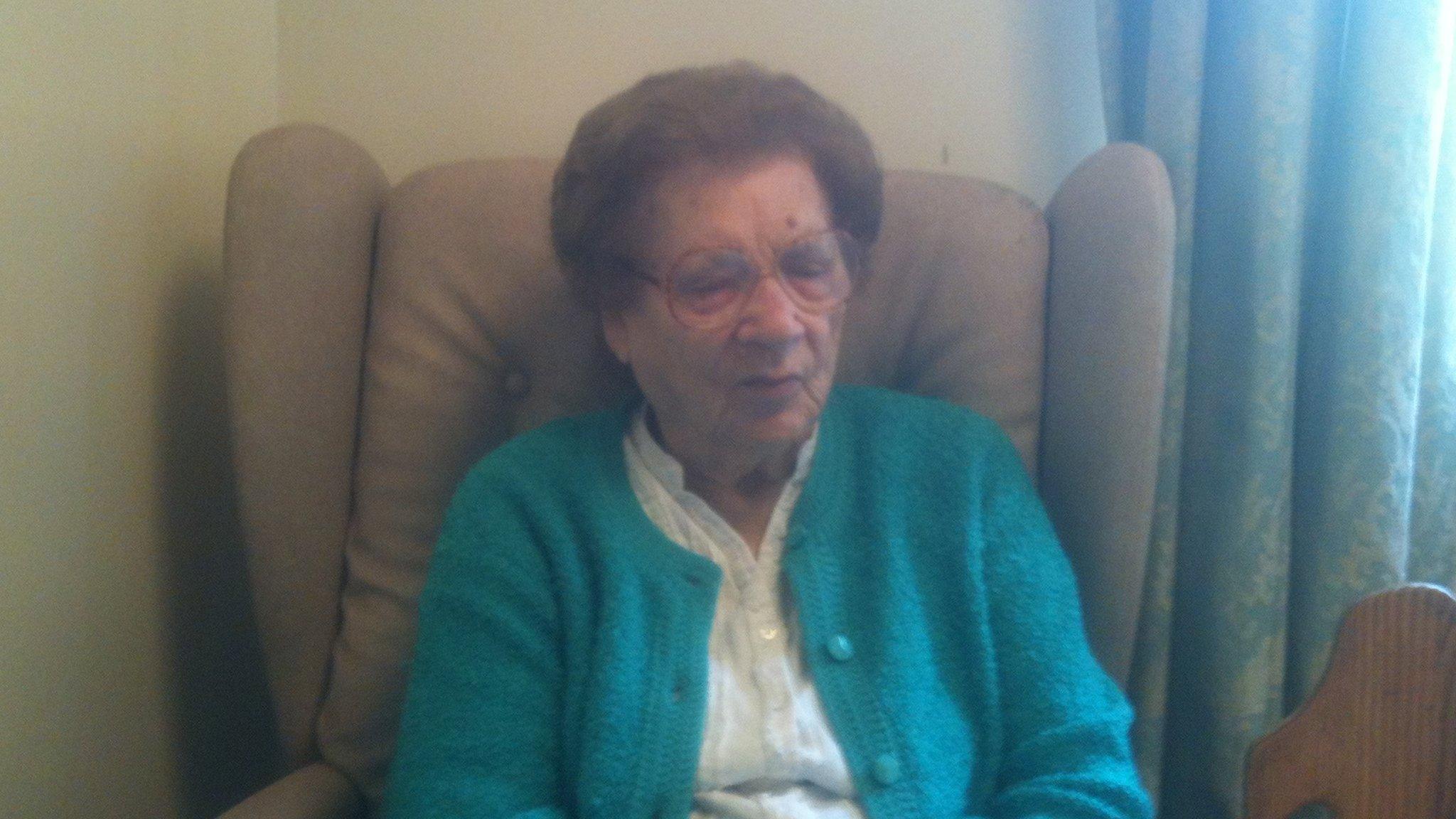'Disturbing' hallucinations increase during lockdown for blind people
- Published
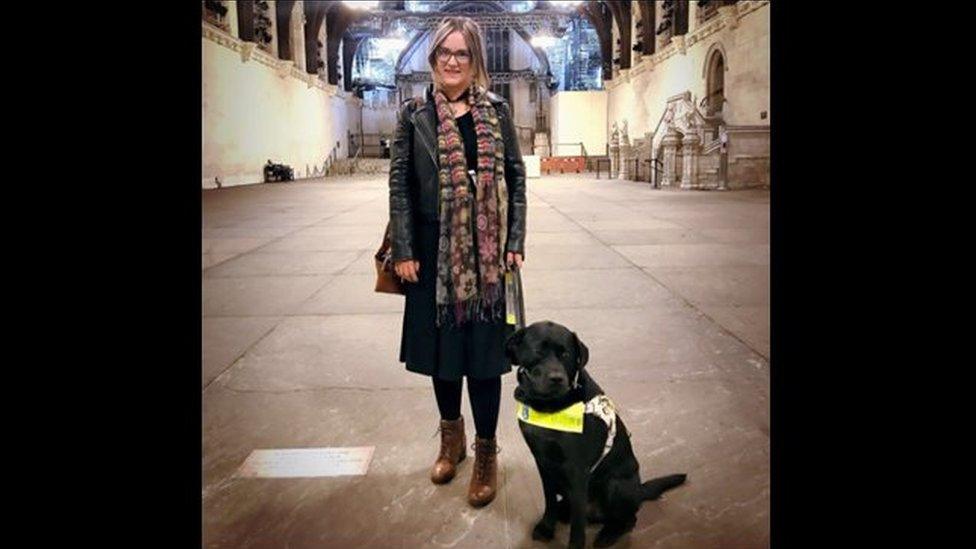
Lockdown has seen a "disturbing" rise in the number of blind people experiencing distressing hallucinations, the RNIB charity says.
The condition, known as Charles Bonnet syndrome (CBS), causes patients to have vivid hallucinations.
False images are triggered when the brain tries to fill in the gaps caused by sight loss.
The RNIB said calls to its helpline had increased by almost 50% and patients had reported more sinister visions.
CBS is thought to affect up to 30% of those with sight loss, although it can sometimes be confused with mental health concerns.
'Pool of blood'
Recently, Coronation Street highlighted CBS after Johnny Connor - landlord of the Rovers Return pub - experienced disturbing visions of cockroaches, mice and his dead son.
He became increasingly concerned about his mental health until, in Monday night's episode, he was diagnosed with CBS after visiting a doctor while in prison.
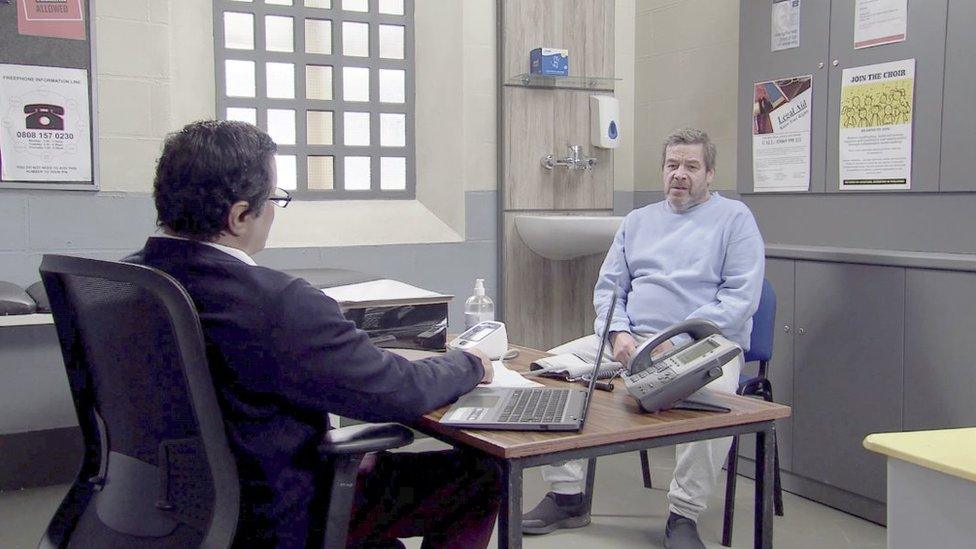
Kirsty James, 31, from Caerphilly has been registered blind since she was 13 and says she first experienced an hallucination about a decade ago.
"I looked down and saw a pool of blood around my guide dog. I screamed out - 'my dog's paws are bleeding' - but when I touched them there was nothing there. I was mortified.
"I didn't talk about it for so long - I was ashamed and embarrassed. I had been having hallucinations for a year before I told my husband.
"But it helps to talk about it - makes it less scary."
Judith Potts who runs Esme's Umbrella, a support group for people with CBS, says shame can sometimes stop people seeking help.
"People who develop it think immediately they've developed a mental health condition," she says.
"So they don't confide in anyone and they live in their world of uninvited images, it's utterly terrifying."
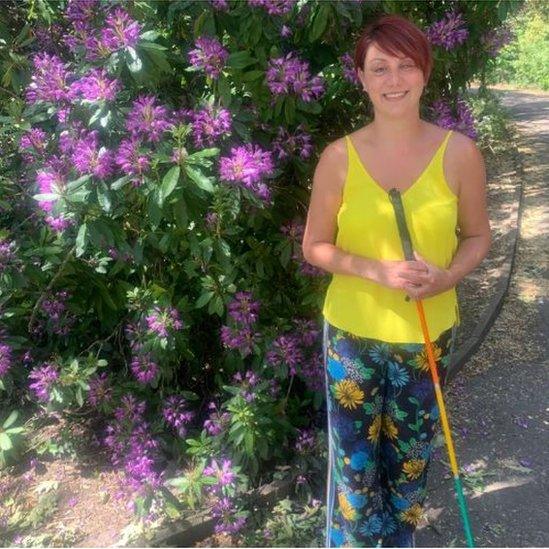
Nina Chesworth, 38, from Manchester developed CBS when she lost her vision and experiences a variety of hallucinations.
"When I'm feeling calm I have colourful patterns and bubbles - like a lava lamp - and sometimes cartoon characters or unicorns. Mickey Mouse is a frequent visitor.
"But when I'm more anxious, upset or angry, I find they morph into scarier images. Ghost faces or zombie faces appear a lot. I'll often see eyes staring at me.
"When I finally got a diagnosis it was was so nice to hear someone say: 'This is a condition'. But it was still a big pill to swallow, and it still affects my life."
Research by University College London found half of patients with CBS had found their hallucinations had become more sinister during lockdown and more than 50% said they were more frequent.
'It scared me'
Professor Mariya Moosajee, one of the researchers and a consultant Ophthalmologist, said: "The main triggers are loneliness, reduced exercise, exposure to chronic depressing news - all things we are seeing in lockdown."
The Royal National Institute of Blind People (RNIB) said its helpline now received more questions about CBS than any other condition, including cataracts.
Keith Valentine, director of development at the RNIB, said: "The numbers are disturbing because we know lots of people are coping with this alone and not getting diagnosed.
"I get hallucinations myself and whilst I'm a confident blind person it scared me when the hallucination was staring at me through the window.
"If you're going through this, you're not alone."
Mr Valentine advised anyone experiencing hallucinations to contact the RNIB, external.
- Published6 April 2018
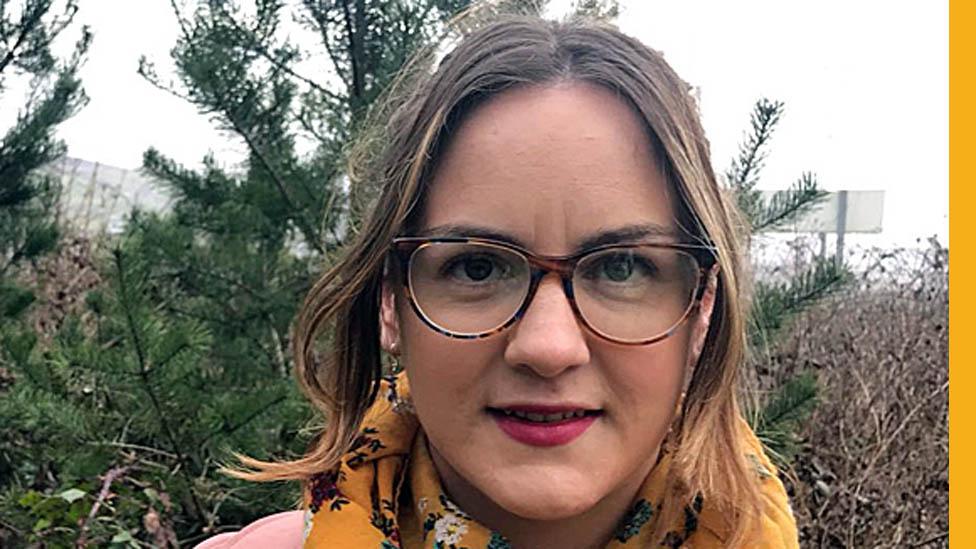
- Published21 May 2013
